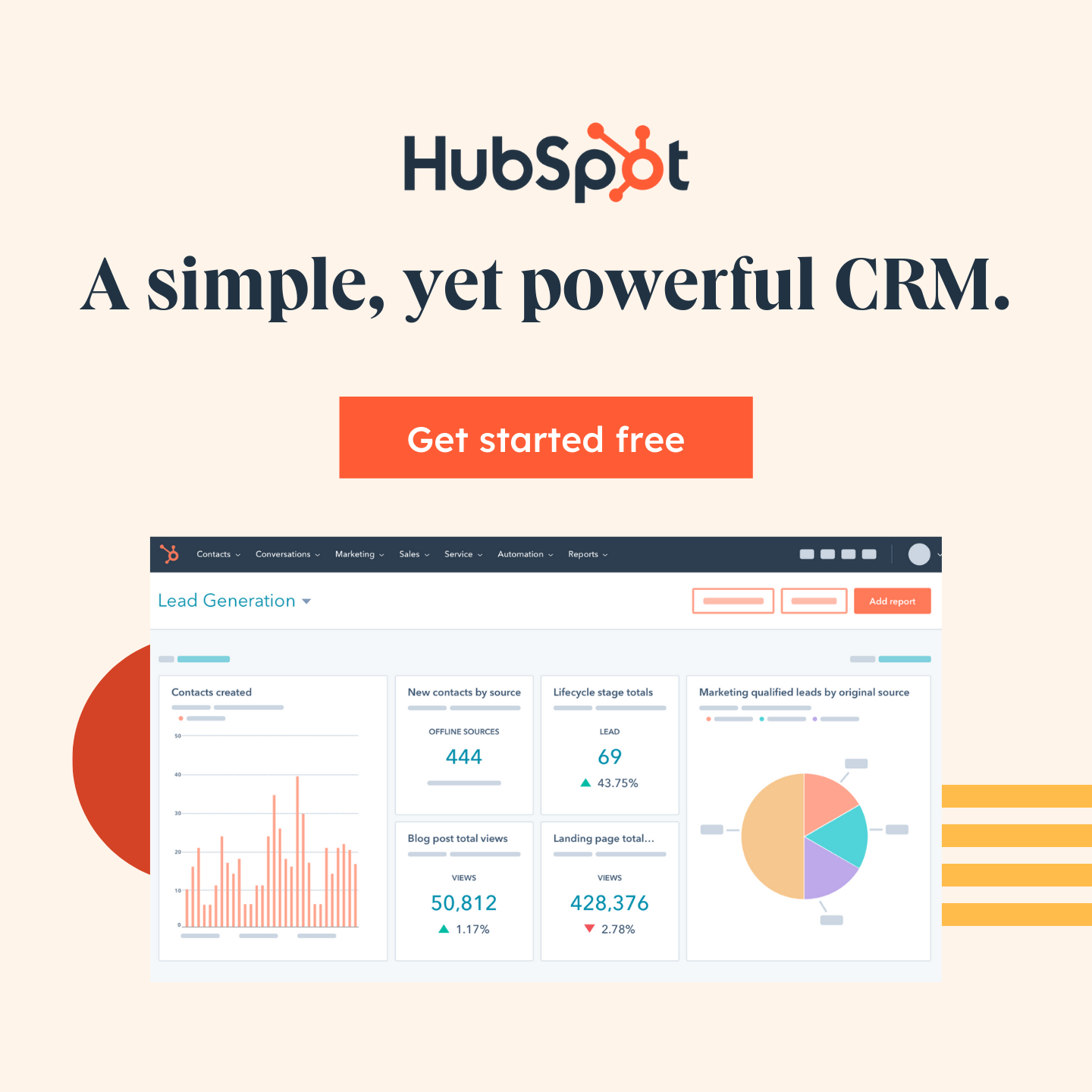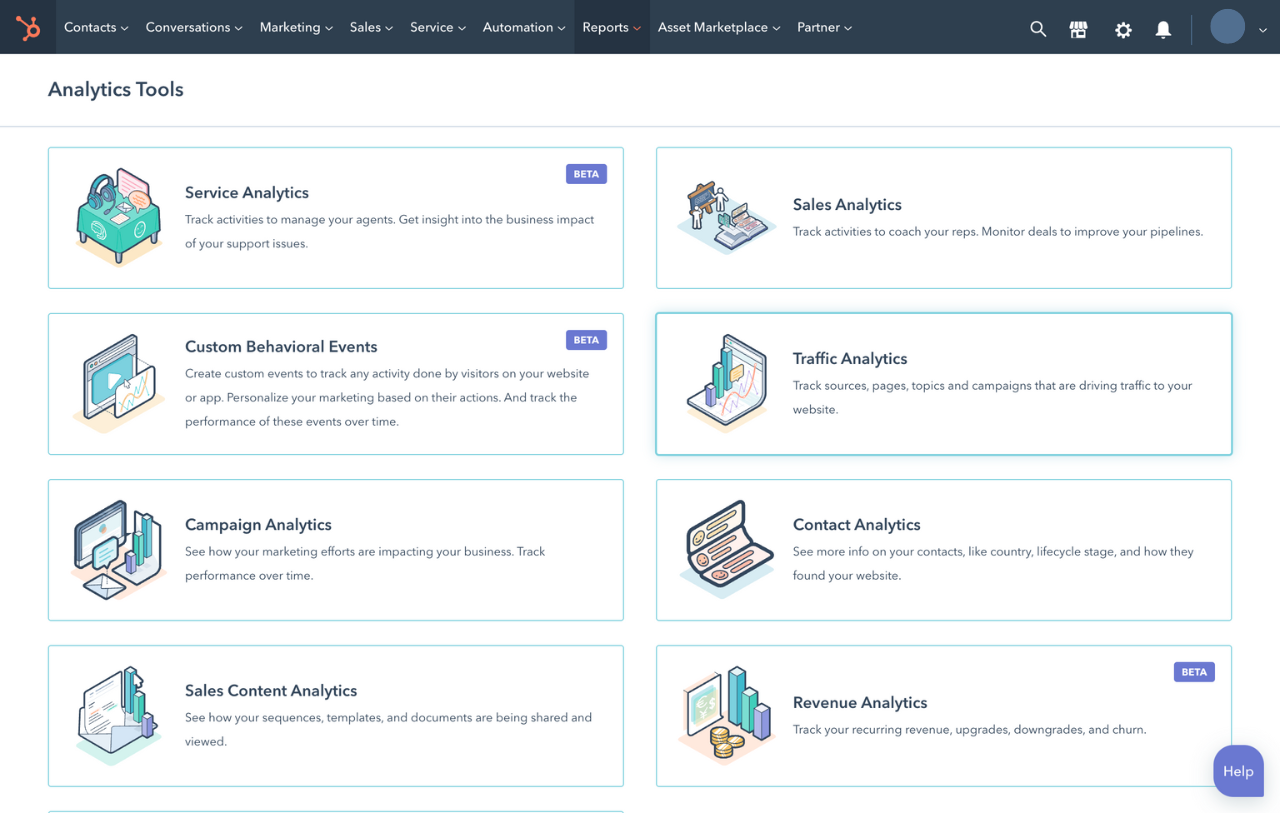Delving into the world of crm software examples is like unlocking a treasure chest for your business. These powerful tools are not just about keeping tabs on customer interactions; they’re the backbone of fostering lasting relationships and driving sales growth. This article illuminates the multifaceted ways in which Customer Relationship Management (CRM) frameworks simplify workflows, elevate customer contentment levels, and amplify collective efficiency.
We’ll walk through top CRM platforms set to shape 2024, showcasing their unique features and how they cater to different business needs. From boosting sales efficiency to personalizing customer experiences with AI – it’s all covered here. Let’s start our journey into understanding these game-changers in depth.
Table Of Contents:
- Understanding CRM Software and Its Importance
- Why Businesses Should Invest in CRM Software
- Top 10 CRM Software Examples for 2024
- In-depth Analysis of HubSpot as an Inbound CRM Solution
- Diverse Types of CRMs Catering to Various Business Needs
- The Role of Microsoft Dynamics in Offering a Comprehensive Solution
- Evaluating Freshworks’ Simplicity in Managing Customer Relationships
- The Future Trends Shaping the Evolution of CRMs
- Conclusion
Understanding CRM Software and Its Importance
Customer Relationship Management (CRM) software isn’t just a digital Rolodex of your customers. Modern enterprises see CRM software as their operations’ core, ingeniously orchestrating customer information management, simplifying communications, and bolstering connections. Imagine having all your customer info in one place—this is exactly what CRM tools offer.
What is CRM Software?
A solid CRM tool acts like the world’s best PA; it remembers details so you don’t have to. At its core, operational CRMs are adept at storing vast amounts of customer data from various touchpoints including social media interactions and direct email exchanges. This treasure trove allows businesses to tailor their approach for each client with precision.
CRM systems don’t just hoard data; they dissect it, offering nuggets of wisdom on refining sales strategies or marketing maneuvers needing a slight adjustment. Essentially, these platforms make sure no opportunity slips through by helping teams track every interaction along the sales pipeline.
The Significance of CRM in Today’s Business Landscape
In today’s business world, where the line between success and failure is drawn by how happy customers are, leveraging tech to deepen connections has become absolutely vital. A reliable CRM platform, such as HubSpot’s offering, enables businesses not only to keep tabs on existing clients but also effortlessly capture new leads.
This importance stretches across departments too; from marketing teams needing detailed analytics for campaign performance assessments to sales reps who rely on up-to-the-minute information during negotiations—it’s clear why adopting a robust customer relationship management system is seen as pivotal in driving growth and maintaining a competitive edge today.

Why Businesses Should Invest in CRM Software
Exploring the myriad benefits of using CRM software, from improving sales processes to fostering better customer engagement.
Boosting Sales Efficiency with CRM Tools
How CRM software optimizes the sales process and empowers sales teams.
The sales process can sometimes feel like navigating through a dense jungle without a map. But imagine if you had a GPS that not only showed you the path but also helped carry your gear. That’s what using CRM tools feels like for sales teams. These systems streamline tasks, making it easier to track interactions and manage customer data.
Sales reps find their efforts magnified when they use CRMs, as these platforms automate time-consuming tasks and make goal setting clear-cut. The end result? A notable increase in sales because every lead is followed up on efficiently, and no opportunity slips through the cracks.
Enhancing Customer Service through Effective Contact Management
The role of CRM in improving customer service by streamlining contact management.
In our rapidly moving era, individuals anticipate immediate responses and resolutions to their inquiries and issues. Here’s where effective contact management comes into play; it’s akin to having all your contacts organized neatly in one place rather than scattered across multiple notebooks.
A robust CRM platform ensures that customer service teams have instant access to detailed client histories at their fingertips—be it previous purchases or past complaints—allowing them to provide personalized support swiftly. This feature not only elevates customer happiness but also morphs sporadic shoppers into dedicated enthusiasts, eager to endorse your offerings.
Fundamentally, pouring resources into CRM technology transcends mere enhancements in workflow efficiency—it’s a strategic move to forge enduring connections with your clientele by reliably surpassing their anticipations.
Top 10 CRM Software Examples for 2024
Finding the right Customer Relationship Management (CRM) software can feel like searching for a needle in a digital haystack. But fret not, because we’ve got you covered with the crème de la crème of CRM solutions set to take 2024 by storm. Each one is designed to streamline your sales processes, boost customer engagement, and ultimately increase sales.
ClickUp: The All-in-One Suite
ClickUp isn’t just another task management tool; it’s a powerful CRM platform that brings project management and customer interactions under one roof. ClickUp streamlines business communication and effortlessly marries it with social media outreach, enhancing marketing initiatives.
This flexibility makes ClickUp an excellent choice for teams looking to manage multiple aspects of their operations without switching between apps constantly.
- Pros: Versatile project management tool with customizable features.
- Cons: Can be overwhelming due to its complexity and abundance of features; steep learning curve for new users.
HubSpot: Mastering Inbound Marketing
The cornerstone of any good inbound strategy is HubSpot. With its comprehensive suite including HubSpot Sales and HubSpot Marketing, this powerhouse simplifies managing every stage of the customer lifecycle. Its free tools are perfect for small teams getting started but make no mistake; its paid versions pack enough punch to automate time-consuming tasks effectively.
Besides helping businesses provide stellar customer support through live chat options and knowledge bases, HubSpot excels at tracking existing customers’ data – ensuring marketing contacts remain up-to-date automatically.
Try HubSpot for FREE
Zendesk: Elevating Customer Support
Zendesk’s strength lies in creating seamless experiences across all channels – whether email or live chat. This powerful tool allows salespeople to offer customized help quickly, leveraging in-depth profiles of customers built from previous exchanges over various channels.
Fundamentally, Zendesk shines by blending unparalleled service quality with the agility to resolve problems swiftly, embedding itself as a critical tool in businesses focused on elevating their customer support processes.
- Pros: Offers a wide range of customer support tools and integration options.
- Cons: Pricing can be high for small businesses; customization options may require technical knowledge.
Freshworks CRM: Simplifying Complexity
If simplicity had a name in the world of CRMs, it would likely be Freshworks CRM. Renowned for its user-friendly interface coupled with potent automation features – think automated emails triggered by specific actions – Freshworks ensures nothing falls through cracks when nurturing leads down your sales pipeline toward conversion.Plus, engaging with potential clients via various channels becomes hassle-free given its intuitive design geared towards improving overall productivity amongst team members focusing on goal setting or forecasting future trends based off gathered intelligence over time.Furthermore, organisations gain invaluable insights into performance metrics allowing them refine strategies moving forward thus bolstering chances success exponentially along way too.
- Pros: User-friendly interface with a good set of CRM features.
- Cons: Limited advanced features compared to competitors; integration capabilities can be lacking.
In-depth Analysis of HubSpot as an Inbound CRM Solution
HubSpot’s Role in Streamlining Sales Processes
Imagine having a tool that not only keeps your customer data tidy but also nudges you when it’s time to reach out to prospects or follow up on leads. That’s where HubSpot CRM shines, especially for those focusing on inbound marketing strategies. It takes the guesswork out of managing your sales pipeline.
HubSpot’s CRM doesn’t just gather data; it offers deep insights and resources, enabling salesforces to deepen their understanding of clientele, thereby enriching every exchange. Whether it’s tracking interactions with potential clients across social media platforms or automating time-consuming tasks like email sequences, HubSpot equips businesses with everything they need to enhance their sales efforts.
By integrating live chat and a comprehensive knowledge base, the software significantly elevates sales through prompt customer support, leading to higher satisfaction levels. But what truly sets HubSpot apart is its ability to let marketing teams create personalized experiences at scale through seamless integration between the HubSpot Marketing Suite and the HubSpot CRM platform.
An often overlooked aspect is how adeptly HubSpot manages third-party integrations. By enabling the expansion of its capabilities, it transforms from boosting goal-setting efforts in smaller groups to offering complimentary resources that elevate operational effectiveness at no extra expense.
Furthermore, by harnessing the power of intricate analytics and reporting tools, companies gain access to essential data regarding their audience’s actions and tastes—key elements for customizing upcoming promotions to boost interaction rates and elevate conversion numbers via messages that are meticulously crafted using immediate consumer responses.
Diverse Types of CRMs Catering to Various Business Needs
Choosing the right CRM can feel like finding a needle in a haystack. But, it’s less about the needle and more about knowing your haystack. Diving into the diverse world of CRMs reveals that they cater to a broad spectrum of business demands.
Focusing on Operational Efficiency with NetSuite
If operational efficiency is what you’re after, NetSuite CRM might just be your ticket. NetSuite isn’t merely a tool; it’s an architect of operations, deftly organizing client support inquiries and ensuring your sales force remains harmonized. Imagine having all customer interactions, from emails to phone calls, logged without lifting a finger – that’s NetSuite for you.
What’s truly remarkable is how it simplifies complex chores, allowing companies to pivot towards scaling their operations instead of being ensnared in the minutiae of office tasks.
Pros: Comprehensive business management suite with robust functionalities.
Cons: High cost and complexity make it less accessible for small businesses; steep learning curve.
Then there are General CRMs like Salesforce, known for their versatility across industries. Salesforce has carved out a niche by offering customizable solutions that manage everything from marketing contacts to sales forecasting under one roof.
- Pros: Highly customizable with a vast ecosystem of apps.
- Cons: Can be costly, particularly with add-ons and higher-tier plans; steep learning curve and complex setup.
In contrast, Fully Integrated CRMs such as Freshworks, take integration up a notch. They blend seamlessly into existing systems allowing small teams or even large enterprises the flexibility needed without disrupting workflows.
- Pros: User-friendly interface with a good set of CRM features.
- Cons: Limited advanced features compared to competitors; integration capabilities can be lacking.
Last but not least, Sales CRMs like Pipedrive shine when it comes strictly down to managing the sales pipeline and driving deals home efficiently through goal setting and powerful analytics tools geared towards increasing sales success rates among sales reps.
- Pros: Intuitive interface designed for sales professionals.
- Cons: Limited functionality for complex sales processes; integration options are not as extensive as some competitors.
So whether you’re looking at streamlining operations with NetSuite or aiming for comprehensive coverage with Freshworks and Salesforce; understanding these differences can help pinpoint exactly which type suits your specific requirements best.
The Role of Microsoft Dynamics in Offering a Comprehensive Solution
A closer look at Microsoft Dynamics’ capabilities as a powerful tool for businesses seeking a robust solution that covers various aspects of customer relationship management.
Seamless Integration and Enhanced Productivity
Diving into the essence of Microsoft Dynamics, it’s crafted as an all-in-one CRM package aimed at addressing multiple facets of managing customer interactions. Its capabilities span across sales, marketing, and service divisions, making it an all-encompassing solution for businesses keen on enhancing their customer relationships.
One might wonder what sets the Microsoft Dynamics CRM suite apart from its competitors. Initially, it meshes flawlessly with other Microsoft offerings like Office 365 and Azure, offering a cohesive ecosystem that elevates work output and effectiveness. By weaving customer data directly into their workflow, sales teams enjoy a smoother journey from prospect to close, as they no longer juggle between different apps.
Personalized Communication and Targeted Marketing
Moreover, by harnessing the power of this dynamic CRM utility, sales teams not only ramp up their efficiency but also deepen relationships with clients via tailored interaction tactics, all thanks to the sophisticated analytical instruments embedded in the system. It’s not just about managing existing customers but also acquiring new ones through targeted marketing efforts supported by insightful data analysis.
Operational Effectiveness and Time-saving Features
Focusing on operational effectiveness is another forte of Microsoft Dynamics. By streamlining complex processes such as appointment coordination and monitoring conversations over various social platforms, it liberates valuable time, allowing for deeper connections with both prospective and current clientele.
Adaptability and Scalability
Last but not least is its adaptability; whether you’re part of small teams looking for scalability or large enterprises requiring extensive third-party integrations – this powerful CRM adapts effortlessly, making sure every business need is met efficiently, thereby ensuring high levels of customer satisfaction throughout the entire lifecycle.
- Pros: Deep integration with other Microsoft products and strong customization options.
- Cons: Can be expensive, especially for small to medium-sized businesses; complexity requires time for staff to adapt.
Evaluating Freshworks’ Simplicity in Managing Customer Relationships
When it comes to managing customer support with a breeze, Freshworks CRM takes the cake. Far from being merely another addition to your toolkit, this platform emerges as the indispensable ally in nurturing and smoothly advancing your company’s crucial customer connections.
Freshworks CRM stands out by making complex processes feel like a walk in the park. How? Well, first off, its user interface is as intuitive as they come. Even if you’re not tech-savvy, you’ll find navigating through its features straightforward and stress-free.
Freshworks excels by orchestrating customer engagements and information with a finesse that seems almost magical. It offers an array of features that help businesses track interactions efficiently without breaking a sweat. From logging calls to tracking emails and managing live chat conversations – everything is centralized within one platform.
However, the real game-changer with Freshworks lies in its effortless orchestration of customer assistance. Incorporating a powerful ticketing mechanism, the platform empowers groups to swiftly and efficiently resolve problems. Plus, with integrated knowledge base functionality, customers can often find answers themselves before even reaching out – now that’s smart.
To round things off nicely, let’s talk about customization because every business has unique needs right? With Freshworks’ flexible CRM solution you get exactly what you need, nothing more, nothing less. That means no time wasted on figuring out unnecessary bells and whistles. Just straight up efficiency at its finest.
The Future Trends Shaping the Evolution of CRMs
Personalization at Scale with AI
Imagine walking into your favourite coffee shop, where the barista knows not just your name but also exactly how you like your coffee. This level of personal service is what businesses are aiming to replicate digitally using artificial intelligence (AI) and machine learning in customer relationship management (CRM) systems. In an era where personalization is king, CRM systems are swiftly evolving to offer more tailored engagements that aim to mirror the warmth and specificity of your local barista’s greetings.
AI has transcended the realm of sci-fi, transforming our approach to organizing client information, monitoring exchanges, and foreseeing upcoming purchasing trends. For instance, CRM tools that harness AI can analyze vast amounts of data from social media engagements and past purchase histories to tailor marketing efforts more effectively. It’s all about delivering the right message at the right time but on an unprecedented scale.
Embracing personalization not only streamlines the sales journey, making it quicker; it also revolutionizes the way companies engage with their clientele across every phase of their relationship. From initial contact through various touchpoints to post-sale support via live chat or knowledge base access – every interaction can be customized to meet individual needs without sacrificing efficiency. With solutions like HubSpot’s CRM platform, which seamlessly integrates with both HubSpot Sales and Marketing hubs for better alignment between teams, companies are now able to offer a highly personalised yet consistent experience across all channels.
Conclusion
Exploring crm software examples opens doors to transforming your business. Discovering the power of CRM solutions reveals their potential to deepen connections with clients, elevate revenue, and make your business processes more efficient.
Dive into the future with AI personalization or improve efficiency with operational tools like NetSuite. Remember HubSpot for inbound strategies that attract and engage.
Choosing the right CRM is about matching features with needs. If you’re aiming to elevate your customer support or streamline your sales process, rest assured, the perfect fix awaits discovery.
Investing in CRM technology isn’t just an option; it’s a necessity for staying competitive in 2024 and beyond. Start now to see tangible benefits in customer satisfaction and team productivity.

